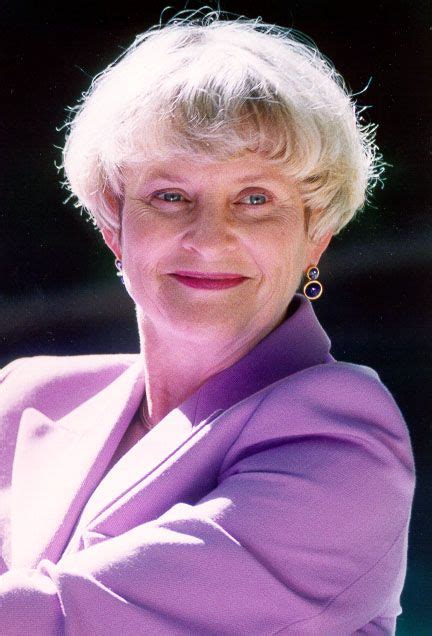A Quote by Laurell K. Hamilton
It has been my experience that women tell more intimate details to their friends than men do. Men may brag more, but women will talk the nitty-gritty and share the experience more.
Related Quotes
Men create their own gods and thus have some slight understanding that they are self-fabricated. Women are much more susceptible, because they are completely oppressed by men; they take men at their word and believe in the gods that men have made up. The situation of women, their culture, makes them kneel more often before the gods that have been created by men than men themselves do, who know what they've done. To this extent, women will be more fanatical, whether it is for fascism or for totalitarianism.
Women age more in company because they have more relationships. Men have buddies. They have acquaintances, they have comrades. Friends as women have, the friends that of the soul that you share everything, that you witness each other's lives, that you talk their, your, heart out, that you cry with, that you ask money when you need, that.
Let's acknowledge that men reach for opportunities more quickly and more easily than women. So often as managers, we give the job to whoever starts solving the problem, to whoever jumps in. Since we know men will jump in faster than women in so many circumstances, we have to slow down and encourage more women to sit at more tables.
Women speak an average 18,000 more words a day than men do. And there may be a genetic reason, it may be neurologically. Not that there's anything wrong with it. See, this is the thing. When you make the observation that women talk 18,000 more words a day than men, it's immediately taken as a criticism because it implies inequality. It implies that there's something wrong with women.
When men sit around and talk, they are very competitive. One person will tell an anecdote and the next person will try to top that. When you get six women together, they share a lot more. They will be far more interested in what the other person has to say. The conservation is more interactive and less about individually showing off.
As I looked more carefully at the listening matrix I saw that during the past twenty years we had taken a magnifying glass to the first of these four quadrants, the female experience of powerlessness. I saw I was subconsciously making a false assumption: The more deeply I understood women's experience of powerlessness, the more I assumed men had the power women did not have. In fact, what I was understanding was the female experience of male power.
If you just look at the number of roles for women versus the number of roles for men in any given film, there are always far more roles for men. That's always been true. When I went to college, I went to Julliard. At that time - and I don't know if this is still true - they always selected fewer women than men for the program, because there were so few roles for women in plays. That was sort of acknowledgment for me of the fact that writers write more roles for men than they do for women.
There is no going back to a time when most women will feel compelled to enter or stay in a bad marriage just for economic security or social respectability. So today, the best way to get women once more interested in getting married and having children is for men to accept women's new insistence on equality. This is, I think, why educated women in America, are now more pro - marriage and more disapproving of divorce than other groups of women who have less experience with egalitarian partners or less clout in getting their needs met in relationships.
According to the CDC, more than one in three women and one in four men in the United States have been victims of domestic violence. It is a widespread public health problem, and every year 1,600 women and 700 men are killed by their intimate partners. One of the biggest risk factors that domestic violence will become fatal is the presence of a gun.
Women have always been more critical of marriage than men. The great mysterious irony of it is - at least it's the stereotype - that women want to get married and men are trying to avoid it. Marriage doesn't benefit women as much as men, and it never has. And women, once they are married, become very critical of marriages in a way that men don't.





































